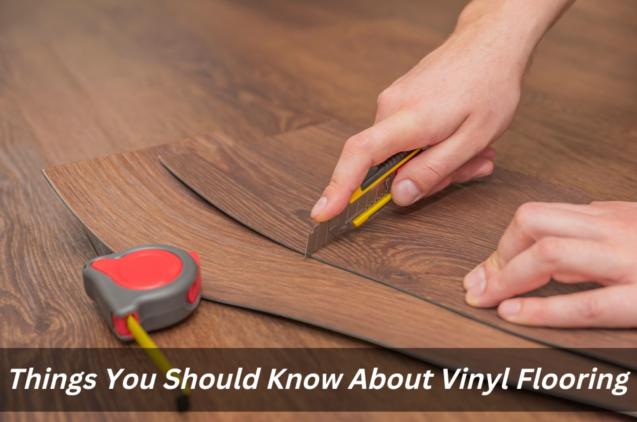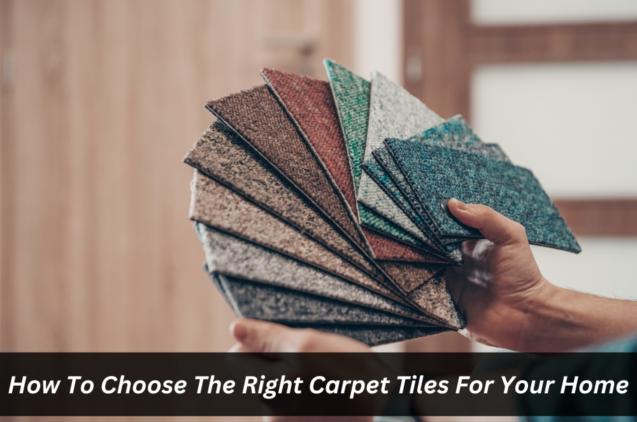
Laminate Vs. Vinyl Flooring: Which Type Should You Go With?
There are two main types of flooring: Laminate and Vinyl. Both offer durability, ease of installation and attractive looks. Although laminate floors tend to cost less, they don’t last as long as vinyl ones. If you want something durable, consider going with vinyl flooring instead.
Vinyl floors are also much easier to clean, resistant to fading and scratches, and require little maintenance. They are also more affordable than laminate floors. For these reasons, vinyl flooring is becoming increasingly popular.
What is vinyl flooring?
Vinyl flooring consists of several layers: top layer, backing, adhesive, underlayment, core and decorative surface material (optional). It comes in different designs that range from realistic wood grain patterns to exotic animal prints to contemporary geometric shapes.
The first step in installing this type of flooring involves cutting out the pieces needed for the room. The next step is to apply an appropriate amount of adhesive to ensure adhesion between each piece. Once the pieces have been attached together, it’s time to install them on the subfloor.
Pros
- Easy to install – Unlike other types of flooring, vinyl flooring needs no special tools for installation. All that is required is a simple saw and some basic hand tools such as screwdrivers, drills and hammers. Most people find that even if they have never done any carpentry before, they will be able to do the job within a few hours.
- Durability – Vinyl flooring is very durable. In fact, it is highly recommended by many experts and flooring online stores that it should be installed in areas exposed to moisture such as bathrooms and kitchens. As long as you keep your vinyl floor dry and clean, it will provide years of service.
- Affordable – The price of vinyl floors tends to be lower compared to other types of flooring. Because of this, it is possible to install it yourself without breaking the bank.
- Cleanable – Since vinyl floors aren’t porous like hardwood, they don’t stain easily. That makes cleaning much simpler. And since there is no need to wax the floor regularly, you won’t face issues when trying to maintain its shine over time.
- Easy maintenance - While it doesn’t take nearly as much work as maintaining hardwood floors, vinyl does require regular cleaning. However, unlike hardwood floors which must be sanded down every couple of months to prevent further damage, vinyl floors only need to be cleaned twice or three times a year.
- Expensive - Compared to tile, ceramic, marble and stone, vinyl floors tend to be expensive. Depending on what kind of design you choose, prices may vary considerably.
- Not stain resistant - When it comes to protecting against stains, vinyl floors are not quite as effective as solid surfaces such as hardwoods.
- High maintenance - Vinyl floors are easier to maintain because they require little upkeep. Yet, once you start neglecting them, you soon realize how difficult it will become to clean them properly.
Unlike vinyl, laminate floors consist of just one layer: the top layer. This means that while it can look good without being anything fancy, it only has one purpose—to protect the underlying floorboards. Laminate floors come in various sizes and thicknesses, so you can pick the perfect one for your home.
Pros
- Strength – Made with high-quality materials, laminate floors are strong enough to withstand heavy traffic.
- Easy maintenance - Even though it looks easy to care for, laminate floors require constant attention. Regularly mopping up spills ensures that they remain stain free.
- Cheap - There are cheap laminate floors available at low prices. But, you get what you pay for. These floors tend to be less expensive, but they also come with several flaws. The quality of these floors tends to deteriorate over time, making them prone to scratches after an extended period of use.
- Low sturdiness – Due to their single-layer structure, laminate floors cannot stand up well to extreme temperatures. So, if your house gets hot during summer, make sure you lay them out in a spot where they can still stay cool.
- Scratches – If you live in a busy household, chances are that your kids might put sticky fingers all over it. To avoid damaging the floor finish, make sure that your children always wipe their hands before touching the floor.
- No soundproof properties - Laminate floors do not have soundproof properties, so you will hear any loud noises coming from the outside. They are also susceptible to moisture, so you should keep pets and toddlers away from them.
There are many online flooring stores that sell different kinds of flooring like hybrid flooring, timber floors, wood floors, luxury vinyl planks and more.



